#Modi
Explore tagged Tumblr posts
Text

#desiblr#desi tumblr#desi teen#desi shit posting#desi tag#hindublr#desi#desi core#sam shitposting again#india pakistan#india pakistan conflict#india pakistan tension#india pakistan war#india pakistan relations#india pakistan news#operation sindoor#pahalgam attack#donald trump#Dolund trump#fuck trump#modi#India#america#sarcasm#sarcastic
85 notes
·
View notes
Text
Okay here are some facts I think everyone needs to know about Modi's relationship with the occupation of Kashmir.
-In June/July of 2019, just a few months after Modi took office for his 2nd term he sent ~10,000 soldiers into Kashmir.
-Shirtly after he suspends telecoms/internet and implements a stringent curfew. He also begins arresting political leaders and HRAs. He begins jailing journalist in the dark (no internet made that easy)
-That August he revokes article 370 and 35a which removed Kashmir's special status (which basically means they took awa their statehood and nullified their constitution) and allowed non-Kashmiris to begin purchasing land in the region.
-Under Modi, Kashmir has become the most militarized zone in the world. Not being hyperbolic here. There are some areas of Kashmir where soldiers outnumber civilians.
Basically Modi has spent the last decade turning Kashmir into an open air prison while laying the groundwork for demographic change. Indian tourism in the area has been on a MASSIVE incline. That's why you're seeing messaging from India calling Kashmir "The Switzerland of India" and why tourists were attacked.
If this all sounds familiar that's because Modi is pulling from Netanyahu's playbook. Down to framing his colonization as a security issue. There's a reason he looks up to him.
Modi is a RSS Hindu nationalist that has been heavily inspired by European fascist movements.
You should know all of these facts as you navigate a lot of disinformation that's gonna come at you.
3K notes
·
View notes
Text





Update:
The Prime Minister of India, Narendra Modi address the nation on Operation Sindoor & Indian decimation of Pakistan terror infrastructure.
Strong warning to Pakistan. India will no longer tolerate bigoted aggression towards Indians without immediate, punitive consequences.
#desiblr#india#hindublr#pakistan is a occupying terror state#pahalgam attack#india pakistan war#news#pm modi#modi#narendra modi#Thank you PM Modi ji#The best prime minister India has had#Jai Shri Ram
53 notes
·
View notes
Text








finally got around to drawing the gang destroying a home depot
#god of war#god of war ragnarok#gow#gowr#kratos#atreus#baldur#skjoldr#odin#freya#freyr#heimdall#sif#lúnda#sindri#brok#magni#modi#angrboda#týr#thrúd thorsdottir#ratatoskr#thor#durlin#mimir#>>mango(t)art#btw whoever left that tag about mimir in a babyseat on the og meme know that i laughed so hard at the image#and the person who said ratatoskr would eat the chips/keep them in his cheek pouch - same hattt#also i know i left the 4th part out im not doin that bro
2K notes
·
View notes
Text
Indian Prime Minister Narendra Modi is, by some measures, the most popular leader in the world. Prior to the 2024 election, his Bharatiya Janata Party (BJP) held an outright majority in the Lok Sabha (India’s Parliament) — one that was widely projected to grow after the vote count. The party regularly boasted that it would win 400 Lok Sabha seats, easily enough to amend India’s constitution along the party's preferred Hindu nationalist lines.
But when the results were announced on Tuesday, the BJP held just 240 seats. They not only underperformed expectations, they actually lost their parliamentary majority. While Modi will remain prime minister, he will do so at the helm of a coalition government — meaning that he will depend on other parties to stay in office, making it harder to continue his ongoing assault on Indian democracy.
So what happened? Why did Indian voters deal a devastating blow to a prime minister who, by all measures, they mostly seem to like?
India is a massive country — the most populous in the world — and one of the most diverse, making its internal politics exceedingly complicated. A definitive assessment of the election would require granular data on voter breakdown across caste, class, linguistic, religious, age, and gender divides. At present, those numbers don’t exist in sufficient detail.
But after looking at the information that is available and speaking with several leading experts on Indian politics, there are at least three conclusions that I’m comfortable drawing.
First, voters punished Modi for putting his Hindu nationalist agenda ahead of fixing India’s unequal economy. Second, Indian voters had some real concerns about the decline of liberal democracy under BJP rule. Third, the opposition parties waged a smart campaign that took advantage of Modi’s vulnerabilities on the economy and democracy.
Understanding these factors isn’t just important for Indians. The country’s election has some universal lessons for how to beat a would-be authoritarian — ones that Americans especially might want to heed heading into its election in November.
-via Vox, June 7, 2024. Article continues below.
A new (and unequal) economy
Modi’s biggest and most surprising losses came in India’s two most populous states: Uttar Pradesh in the north and Maharashtra in the west. Both states had previously been BJP strongholds — places where the party’s core tactic of pitting the Hindu majority against the Muslim minority had seemingly cemented Hindu support for Modi and his allies.
One prominent Indian analyst, Yogendra Yadav, saw the cracks in advance. Swimming against the tide of Indian media, he correctly predicted that the BJP would fall short of a governing majority.
Traveling through the country, but especially rural Uttar Pradesh, he prophesied “the return of normal politics”: that Indian voters were no longer held spellbound by Modi’s charismatic nationalist appeals and were instead starting to worry about the way politics was affecting their lives.
Yadav’s conclusions derived in no small part from hearing voters’ concerns about the economy. The issue wasn’t GDP growth — India’s is the fastest-growing economy in the world — but rather the distribution of growth’s fruits. While some of Modi’s top allies struck it rich, many ordinary Indians suffered. Nearly half of all Indians between 20 and 24 are unemployed; Indian farmers have repeatedly protested Modi policies that they felt hurt their livelihoods.
“Everyone was talking about price rise, unemployment, the state of public services, the plight of farmers, [and] the struggles of labor,” Yadav wrote...
“We know for sure that Modi’s strongman image and brassy self-confidence were not as popular with voters as the BJP assumed,” says Sadanand Dhume, a senior fellow at the American Enterprise Institute who studies India.
The lesson here isn’t that the pocketbook concerns trump identity-based appeals everywhere; recent evidence in wealthier democracies suggests the opposite is true. Rather, it’s that even entrenched reputations of populist leaders are not unshakeable. When they make errors, even some time ago, it’s possible to get voters to remember these mistakes and prioritize them over whatever culture war the populist is peddling at the moment.
Liberalism strikes back
The Indian constitution is a liberal document: It guarantees equality of all citizens and enshrines measures designed to enshrine said equality into law. The signature goal of Modi’s time in power has been to rip this liberal edifice down and replace it with a Hindu nationalist model that pushes non-Hindus to the social margins. In pursuit of this agenda, the BJP has concentrated power in Modi’s hands and undermined key pillars of Indian democracy (like a free press and independent judiciary).
Prior to the election, there was a sense that Indian voters either didn’t much care about the assault on liberal democracy or mostly agreed with it. But the BJP’s surprising underperformance suggests otherwise.
The Hindu, a leading Indian newspaper, published an essential post-election data analysis breaking down what we know about the results. One of the more striking findings is that the opposition parties surged in parliamentary seats reserved for members of “scheduled castes” — the legal term for Dalits, the lowest caste grouping in the Hindu hierarchy.
Caste has long been an essential cleavage in Indian politics, with Dalits typically favoring the left-wing Congress party over the BJP (long seen as an upper-caste party). Under Modi, the BJP had seemingly tamped down on the salience of class by elevating all Hindus — including Dalits — over Muslims. Yet now it’s looking like Dalits were flocking back to Congress and its allies. Why?
According to experts, Dalit voters feared the consequences of a BJP landslide. If Modi’s party achieved its 400-seat target, they’d have more than enough votes to amend India’s constitution. Since the constitution contains several protections designed to promote Dalit equality — including a first-in-the-world affirmative action system — that seemed like a serious threat to the community. It seems, at least based on preliminary data, that they voted accordingly.
The Dalit vote is but one example of the ways in which Modi’s brazen willingness to assail Indian institutions likely alienated voters.
Uttar Pradesh (UP), India’s largest and most electorally important state, was the site of a major BJP anti-Muslim campaign. It unofficially kicked off its campaign in the UP city of Ayodhya earlier this year, during a ceremony celebrating one of Modi’s crowning achievements: the construction of a Hindu temple on the site of a former mosque that had been torn down by Hindu nationalists in 1992.
Yet not only did the BJP lose UP, it specifically lost the constituency — the city of Faizabad — in which the Ayodhya temple is located. It’s as direct an electoral rebuke to BJP ideology as one can imagine.
In Maharashtra, the second largest state, the BJP made a tactical alliance with a local politician, Ajit Pawar, facing serious corruption charges. Voters seemingly punished Modi’s party for turning a blind eye to Pawar’s offenses against the public trust. Across the country, Muslim voters turned out for the opposition to defend their rights against Modi’s attacks.
The global lesson here is clear: Even popular authoritarians can overreach.
By turning “400 seats” into a campaign slogan, an all-but-open signal that he intended to remake the Indian state in his illiberal image, Modi practically rang an alarm bell for constituencies worried about the consequences. So they turned out to stop him en masse.
The BJP’s electoral underperformance is, in no small part, the direct result of their leader’s zealotry going too far.
Return of the Gandhis?
Of course, Modi’s mistakes might not have mattered had his rivals failed to capitalize. The Indian opposition, however, was far more effective than most observers anticipated.
Perhaps most importantly, the many opposition parties coordinated with each other. Forming a united bloc called INDIA (Indian National Developmental Inclusive Alliance), they worked to make sure they weren’t stealing votes from each other in critical constituencies, positioning INDIA coalition candidates to win straight fights against BJP rivals.
The leading party in the opposition bloc — Congress — was also more put together than people thought. Its most prominent leader, Rahul Gandhi, was widely dismissed as a dilettante nepo baby: a pale imitation of his father Rajiv and grandmother Indira, both former Congress prime ministers. Now his critics are rethinking things.
“I owe Rahul Gandhi an apology because I seriously underestimated him,” says Manjari Miller, a senior fellow at the Council on Foreign Relations.
Miller singled out Gandhi’s yatras (marches) across India as a particularly canny tactic. These physically grueling voyages across the length and breadth of India showed that he wasn’t just a privileged son of Indian political royalty, but a politician willing to take risks and meet ordinary Indians where they were. During the yatras, he would meet directly with voters from marginalized groups and rail against Modi’s politics of hate.
“The persona he’s developed — as somebody kind, caring, inclusive, [and] resolute in the face of bullying — has really worked and captured the imagination of younger India,” says Suryanarayan. “If you’ve spent any time on Instagram Reels, [you’ll see] an entire generation now waking up to Rahul Gandhi’s very appealing videos.”
This, too, has a lesson for the rest of the world: Tactical innovation from the opposition matters even in an unfair electoral context.
There is no doubt that, in the past 10 years, the BJP stacked the political deck against its opponents. They consolidated control over large chunks of the national media, changed campaign finance law to favor themselves, suborned the famously independent Indian Electoral Commission, and even intimidated the Supreme Court into letting them get away with it.
The opposition, though, managed to find ways to compete even under unfair circumstances. Strategic coordination between them helped consolidate resources and ameliorate the BJP cash advantage. Direct voter outreach like the yatra helped circumvent BJP dominance in the national media.
To be clear, the opposition still did not win a majority. Modi will have a third term in office, likely thanks in large part to the ways he rigged the system in his favor.
Yet there is no doubt that the opposition deserves to celebrate. Modi’s power has been constrained and the myth of his invincibility wounded, perhaps mortally. Indian voters, like those in Brazil and Poland before them, have dealt a major blow to their homegrown authoritarian faction.
And that is something worth celebrating.
-via Vox, June 7, 2024.
#india#narendra modi#pm modi#modi#bjp#lok sabha elections#rahul gandhi#democracy#2024 elections#authoritarianism#anti authoritarian#good news#hope
758 notes
·
View notes
Text

It must have been difficult for Thrúd, trying to connect with her brothers...

Might not have been all bad though...
#god of war#god of war ragnarok#gow#thrúd#magni#modi#magni and modi#thor#my art#Magni said no#she's like a weird baby to them#their hobby is drinking safe to say they don't have much in common with their baby sister#told y'all i'd be drawing more of them
1K notes
·
View notes
Text
the way i want to hunt down every single person who voted for that man. you do not understand what yall were fucking doing. He fucking started this and brought us to this point. if we are scared for our loved ones right now it is BECAUSE of Modi and yall need to start SAYING IT.
there was no investigation on the attack, he talked about mock drills but then "fooled" everyone. this is not your bollywood action movie there was always going to be real damage and there is no way they didn't foresee it. i genuinely do not understand How is anyone supporting his actions at the moment. he started this war without any basis or inquiry about the actual incident.
PLEASE start mentioning the fact that we are in this because of he had to do something drastic so he can cover major national security issue with "revenge". do not forget that we are in this situation because of him. At the end of the day war or not, as long as he is power we as a country will be doomed.
I am begging you all to start talking about it please. in a country full of propaganda you have to start talking about the fact that this is his fault and his fault alone.
#desi#india#please for the love of god start writing it start blaming him for his actions#modi#jays bs#im so tired of this#im so tired of bhakts
79 notes
·
View notes
Text

I am genuinely impressed that people have the belief that our government has the power to stop ALL the water from going into Pakistan. BRO IN THIS FUCKING COUNTRY IT TAKES FUCKING 12 YEARS TO BUILD A BASIC AS FUCK PASSAGEWAY. Also they took 10 years to just pass the project 🤡, and took 2 years of their own sweet time to build it. I used to live in Pune which gets a good amount of rainfall, but IF the monsoon is delayed by as much as 15 days a notice used to come up “Water only available 9 am to 12 am kindly fill up during that period or order water from outside”. This was because there is no fucking proper infrastructure, apart from Khadagvasla that can sustain needs when there is a lack of water. The best India can do with abrogating the treaty is to revise it and make it 50 - 50 (still unfair in my pov but keeping politics in mind, only this seems feasible). Also the country we are blocking water supply to is a backstabbing bitch. Every time India has hoped for things to get better with Pakistan some or the other disaster has happened. Ex. Vajpayee visits Pakistan, and then comes the Kargil War, Pakistani players play in the inaugural season of IPL, which is followed by 26/11. Also even if there is no “proof” that Pakistan is backing the terrorists. Yeah because some people refuse to believe what one of Pakistan’s own leaders said about sponsoring terrorism . It is kind of fishy that these terrorist organizations are still able to run in Pakistan, which is a heavily militarized/almost military run state without being kicked out. also how do they get the funding when the country itself is drowning in debt? Mind you, this terrorists problem is not new it has happened in the past too and is continuing even today.
#desiblr#desi tumblr#indian politics#modi#pakistan#indus waters treaty#Indian politics#hindublr#really atp I think the non BJP supporters feel that BJP is more powerful than they actually are#Don’t worry peeps BJP at the end is a party in India and till now sarkaari kaam kaaj have always remained slow as fuck#pahalgam attack#justice for pahalgam#pahalgam#fuck terrorists
61 notes
·
View notes
Text
I FUCKING LOVE THIS SONG


333 notes
·
View notes
Text

Indian Prime Minister Narendra Modi hailed a "mega partnership" with the US during his meeting with President Donald Trump, announcing a deal to boost US oil and gas imports to India, aiming to reduce the trade deficit. Modi expressed openness to lowering tariffs, repatriating undocumented Indians, and purchasing US fighter jets, while Trump criticized India's high trade tariffs as a "big problem."
The leaders also discussed immigration, with Trump agreeing to extradite a suspect in the 2008 Mumbai attacks. Despite trade tensions, both emphasized strengthening ties, with Modi playfully adapting Trump's slogan: "Maga plus Miga equals Mega partnership for prosperity."
#general knowledge#generalknowledge#affairsmastery#current events#current news#upscaspirants#upsc#india#generalknowledgeindia#world news#india news#breaking news#news#government#business news#pm modi#modi#narendra modi#trumps#donald trump#president donald trump#trump administration#trump#america#jd vance#president trump#usa news#us politics#politics#usa
54 notes
·
View notes
Note
I wonder what Magni and Modi would look like if Thrud forced them to braid their hair, angry or calm 👁👁
And Your art is beautiful, even Magni and Modi too. ✨️

Mom said to play nice.
#god of war#god of war 2018#gow#magni#modi#thrúd#my art#rambles of cha#Magni is actually the best at braiding of the three#we've all seen his hair
115 notes
·
View notes
Text



Robert and Johnny have always supported each other and been there for each other since day one. I’ve always admired their friendship ♡
#johnny depp#robert downey jr#captain jack sparrow#victor von doom#gellert grindelwald#tony stark#modi#doctor doom#iron man#pirates of the caribbean#avengers doomsday#rdj#jack sparrow#avengers: doomsday#fantastic beasts#fantastic four#willy wonka#potc#fantastic 4#marvel cinematic universe#mcu#johnny depp is a legend#hollywood#grindelwald#dr. doom#dr doom#f4#ff
271 notes
·
View notes
Text
I had a realization about Modi.

When you first go to Asgard as Atreus and meet Sif, she's angry at you, due to what you did to Modi. Which tells you she resented Atreus for what he did.
When you meet Thrud, she tells you no one liked Modi and that they're better off without him and actively tries to be friends with you, which at least tells you she didn't resent Atreus despite him needlessly killing her brother.
When you work with Thor the first time and he pins you to the wall with Mjolnir, he starts with "Modi had some problems." That and the first battle with Kratos tells you that Modi was regarded lowly even by Thor and Thor refuses to acknowledge his own role in Modi's death.
When you meet Sif again with Thrud, she angrily scolds Thrud and says that she shouldn't be with Atreus because of "What his father did." not "What he and his father did.".
and in Ragnarok, when you meet Thrud again, she says "You're a killer just like your father and you're here to kill us all." implying that she thought he wasn't a killer.
All of these facts point to one conclusion:
They never told Thrud what happened to her brother.
She thinks both her brothers died in battle. She doesn't know what Thor did.
Which makes sense, but also ...... that's fucked up.
#god of war#god of war Ragnarok#god of war 2018#gow#gowr#gow ragnarok#gow kratos#Kratos#Modi#modi thorson#Magni#Magni Thorson#Thrud#thrud thorsdottir#thrud god of war#gow thrud#atreus#loki#Thor#thor odinson#gow Thor#god of war Thor#thor god of war#gow Ragnarok Valhalla#god of war Valhalla#god of war Ragnarok Valhalla#Magni and modi
319 notes
·
View notes
Text
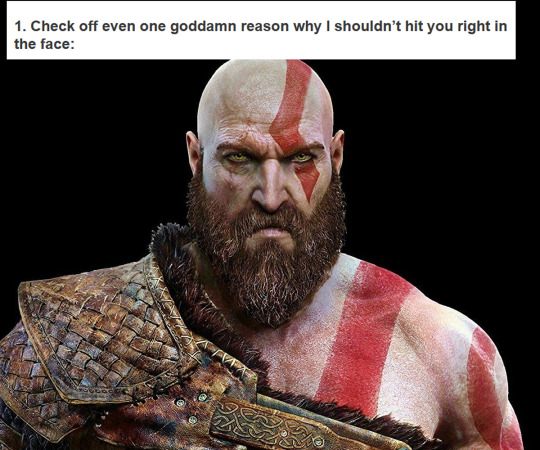
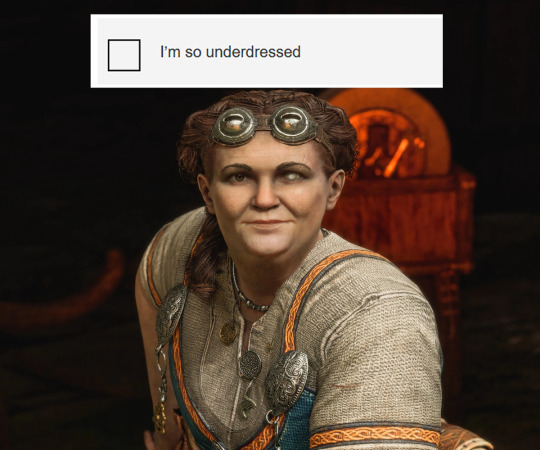
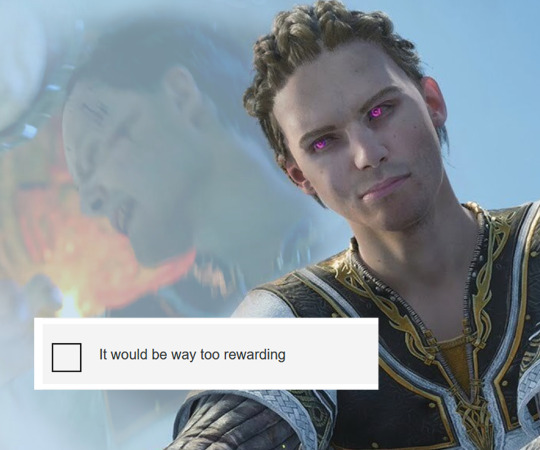
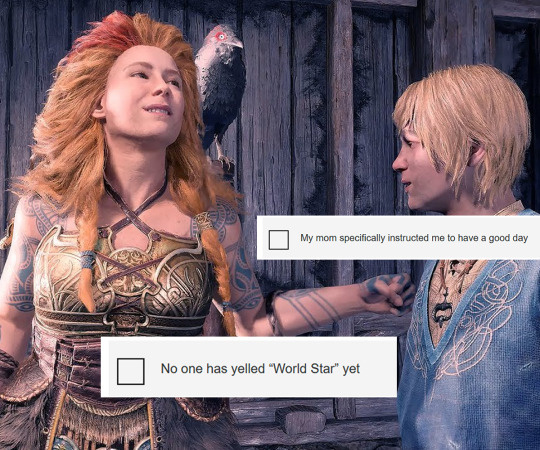
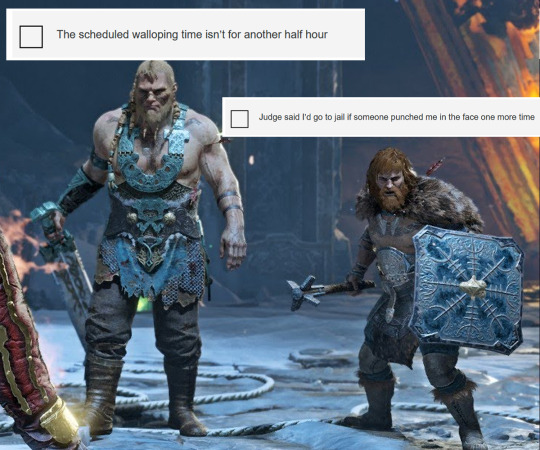
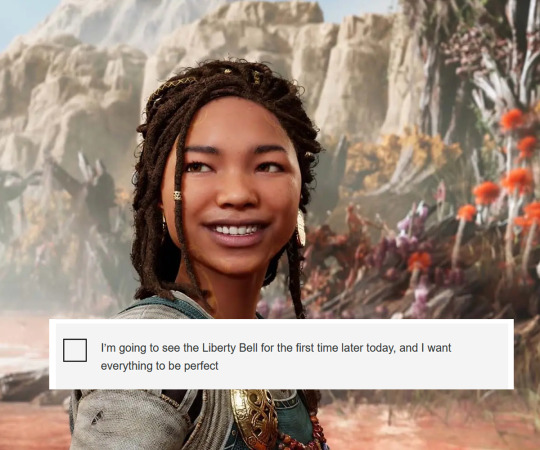

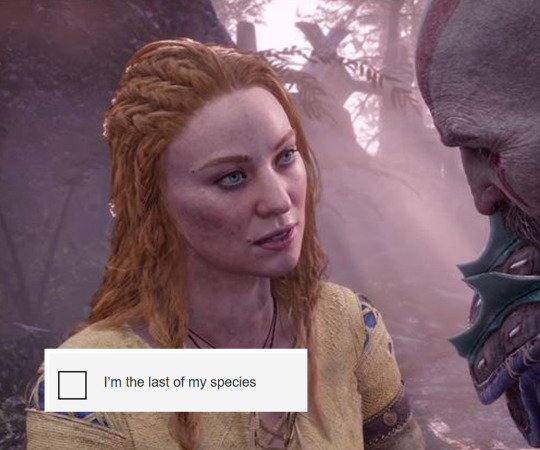



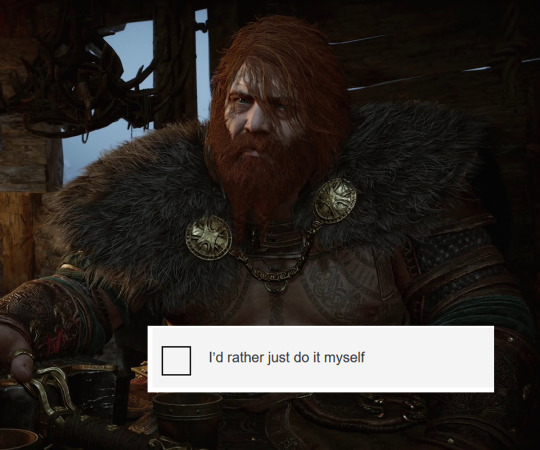
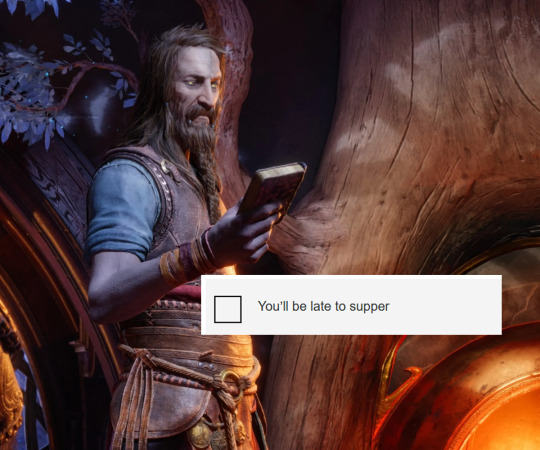



reasons not to get hit right in the face
#god of war#god of war ragnarok#gow#gowr#kratos#lúnda#heimdall#magni#modi#thrúd thorsdottir#skjöldr#angrboda#atreus#laufey the just#freya#brok#sindri#mimir#thor#týr#freyr#odin#baldur#>>mangostuffedchicken#i missed a few but the list was growing and couldn't find someone i was really feeling them for#like so many of these are because i can almost hear it in their voices#especially sindri and brok's and mimir and odin's#also it's 4/20 happy 4/20 guys#only barfing out picture memes while working on actual drawing stuff i promise
363 notes
·
View notes
Text

Modi Rosenfeld
Gender: Male
Sexuality: Gay
DOB: 29 April 1970
Ethnicity: Ashkenazi Jewish
Nationality: American
Occupation: Comedian, actor
#Modi Rosenfeld#Mordechi Rosenfeld#modi#lgbt#lgbtq#mlm#homosexuality#male#gay#1970#jewish#ashkenazi jewish#comedian#actor
24 notes
·
View notes
Text





JOHNNY DEPP. San Sebastian Film Festival - Photocall.
#johnny depp#jdeppedit#johnnydeppedit#userdilf#dilfsource#dilfgifs#dailymen#mancandykings#flawlesscelebs#dailycelebs#flawlessgentlemen#san sebastian film festival#photocall#modi#photoset
95 notes
·
View notes